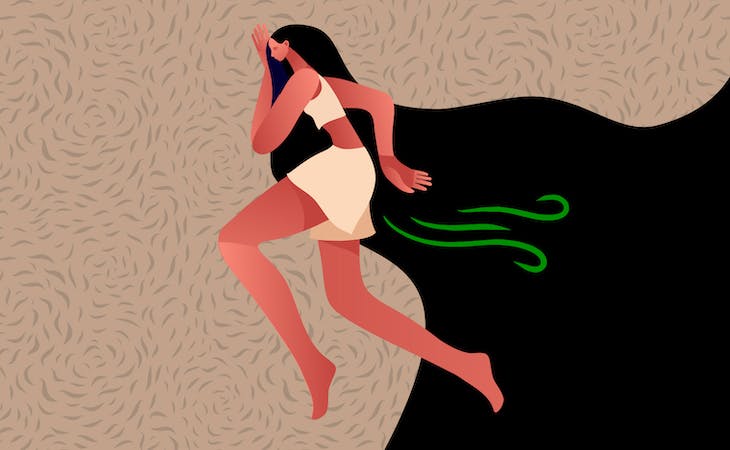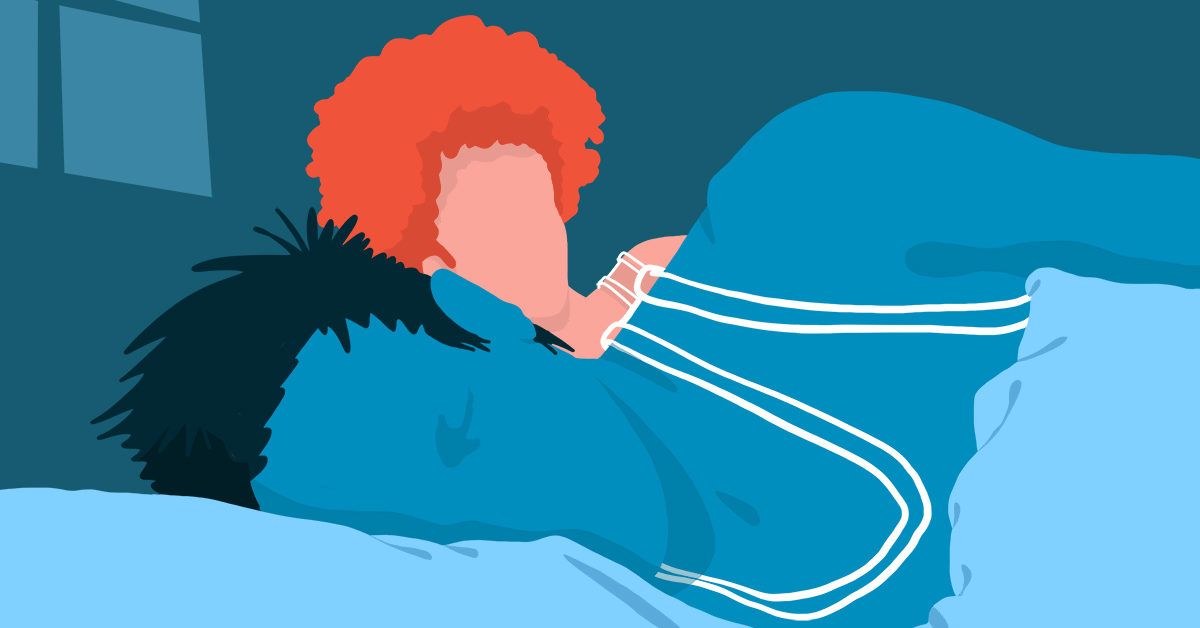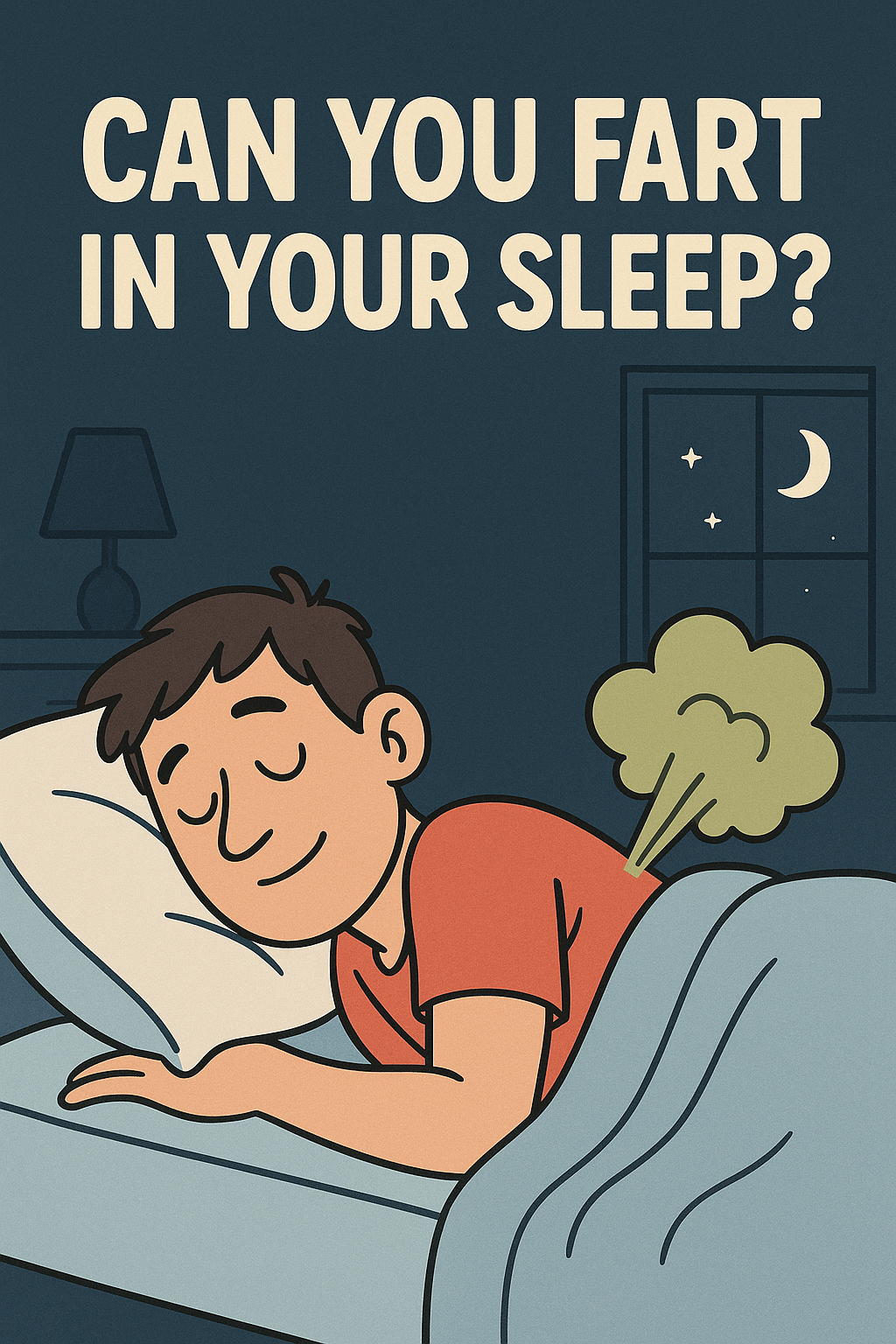Have you ever woken up wondering if you passed gas in your sleep? Or perhaps, you’ve been the unlucky one to hear someone else’s nocturnal emissions.
It’s a topic that often provokes giggles and curiosity. The truth is, your body doesn’t take a break from its natural processes just because you’re snoozing. But what really happens when you’re asleep? Could this be affecting your sleep quality or even your health?
Stick around, and you’ll uncover the surprising science behind sleep-time flatulence. You’ll discover why it happens, what it means for your body, and how it might be more common than you think. Get ready to dive into the unexpected world of sleep and farts—it’s more fascinating than you’d imagine!

Credit: indianarugco.com
Sleep Physiology
Understanding sleep physiology helps us comprehend the various functions of our body during rest. Sleep is a complex process involving distinct stages and body functions. These elements contribute to a restful and healthy sleep cycle. Let’s delve into the stages of sleep and the body’s functions during this time.
Stages Of Sleep
Sleep occurs in cycles, each lasting about 90 minutes. Each cycle consists of several stages. The first stage is light sleep, where the body begins to relax. The second stage marks a deeper sleep where heart rate and temperature drop. The third stage involves deep sleep, crucial for physical recovery. Finally, the REM stage supports brain functions like memory and learning. Every stage plays a key role in maintaining health.
Body Functions During Sleep
During sleep, the body performs essential functions. Breathing becomes regular and steady. The heart rate slows down, promoting cardiovascular health. The digestive system continues to work, processing food and nutrients. Muscles relax, allowing the body to repair and grow. The brain also remains active, processing information and storing memories. These functions illustrate why quality sleep is vital for well-being.

Credit: www.saatva.com
Digestive System Activity
Sleeping doesn’t stop the digestive system. Gas builds up and can escape as a fart during sleep. It’s a normal process.
The human digestive system is constantly working, even when you’re asleep. It’s like having a personal assistant that never clocks out, ensuring your body gets the nutrients it needs. This continuous activity means that gas production doesn’t take a break either.
Gas Production Process
Gas forms as a natural part of digestion. Your body breaks down food, releasing gases like methane, carbon dioxide, and hydrogen. This process is as routine as brushing your teeth, yet it often goes unnoticed until it makes an unexpected appearance. Have you ever wondered why some foods seem to make you gassier than others? Foods like beans, broccoli, and onions contain complex carbohydrates that your stomach struggles to digest. These undigested bits travel to the intestines, where they ferment and produce gas.
Role Of Intestinal Flora
Your intestines host a bustling community of bacteria, known as intestinal flora. These tiny organisms play a crucial role in breaking down food particles that your body can’t digest on its own. In doing so, they release gases as a byproduct. Think of your intestinal flora as a team of diligent workers. They’re busy around the clock, even while you dream away. But have you considered how your diet might influence their productivity? A balanced diet supports a healthy gut flora, which can lead to less gas production. Eating a variety of foods, especially those high in fiber, helps maintain this balance. So, next time you prepare a meal, think about how it might affect your nighttime digestion. Does this make you rethink your late-night snack choices? Understanding your digestive system can help you make smarter food decisions and keep nighttime surprises to a minimum.
Factors Influencing Nighttime Gas
Nighttime gas is an amusing yet intriguing subject. While many wonder if it’s possible to pass gas while asleep, the truth is that several factors come into play. Let’s dive into the main influences behind this natural phenomenon.
Dietary Choices
Your diet significantly impacts your nighttime gas levels. Foods high in fiber, such as beans, broccoli, and whole grains, are notorious for causing gas. These foods ferment in your intestines, leading to gas buildup.
Dairy products can also contribute if you’re lactose intolerant. Consider how your body reacts to different foods throughout the day. Are there specific meals that make you feel gassier?
Adjusting your diet might help reduce nighttime flatulence. Try keeping a food diary to pinpoint the culprits. Small changes can make a big difference in your sleep quality.
Lifestyle Habits
Your daily habits also influence nighttime gas. Eating quickly can cause you to swallow more air, which may lead to more gas. Slow down and enjoy your meals to minimize this effect.
Stress and anxiety can affect your digestive system, leading to increased gas production. Consider incorporating relaxation techniques into your routine. Could meditation or deep breathing exercises before bed help you?
Physical activity plays a role too. Regular exercise promotes a healthy digestive system, which can reduce gas. Aim for at least 30 minutes of physical activity most days to keep things moving smoothly.
By being mindful of these factors, you can take proactive steps toward a more comfortable night’s sleep. What small changes can you make today to improve your nighttime comfort?

Credit: www.healthline.com
Sleep Positions And Gas Release
Did you know your sleep position can affect gas release? Yes, it can. Different positions impact how comfortably gas exits the body. Let’s explore how sleep positions and movements influence gas release during sleep.
Impact Of Sleeping Positions
Sleeping on your back can trap gas in your stomach. This position makes it harder for gas to move. Lying on your side may help gas escape more easily. It allows gravity to assist in moving gas through the intestines. Sleeping on your stomach can also help release gas. But it might cause discomfort for your neck and spine.
Effects Of Movement During Sleep
Movement during sleep can affect gas release. Tossing and turning can help move gas along. It stirs the intestines, promoting gas passage. Stillness may cause gas to build up. Regular movements prevent discomfort and bloating. Even gentle shifts help gas find its way out.
Health Implications
Sleeping does not stop your body from releasing gas. Farting in your sleep is natural and usually harmless. Most people are unaware when it happens, as it occurs during relaxed sleep phases.
Farting in your sleep might sound amusing, but it can have real health implications. While it’s a natural bodily function, excessive gas might hint at underlying health issues. Understanding what’s normal and what’s not can help you take proactive steps towards better health.
Normal Vs. Excessive Gas
Passing gas during sleep is a normal bodily process. Most people release gas about 5 to 15 times a day. It’s your digestive system doing its job, breaking down food and releasing gases. However, if you find yourself or your partner frequently disturbed by nighttime gas, it might be more than just an embarrassing moment. It could indicate that your body is struggling with certain foods or digestive processes. Think about what you ate before bed. Foods like beans, broccoli, and dairy products are known culprits for causing excessive gas. Keeping a food diary might help you pinpoint specific triggers.
Potential Medical Concerns
Excessive gas can sometimes signal medical concerns. Conditions like lactose intolerance, irritable bowel syndrome (IBS), or even food allergies could be the culprits. Have you noticed any accompanying symptoms like abdominal pain or bloating? If so, it might be time to consult a healthcare professional. Ignoring these signs might lead to more discomfort or potential health issues. Taking action can improve your sleep quality and overall well-being. So, the next time you or your partner find yourselves disrupted by sleep-time gas, consider the potential health implications. Are you eating something that doesn’t agree with your body? Or is it time to seek medical advice? Taking a closer look at these questions can lead to better nights and healthier days.
Preventive Measures
Sleeping doesn’t always stop bodily functions. You might pass gas in your sleep. Eating light meals before bed and avoiding carbonated drinks can help reduce nighttime flatulence. Staying relaxed and maintaining a healthy diet also play a role in managing this natural occurrence.
Preventing nighttime flatulence can enhance sleep quality and comfort. Small changes in diet and lifestyle can significantly reduce gas production. These adjustments can aid in minimizing gas-related disturbances during sleep.
Dietary Adjustments
Certain foods can increase gas production. Beans, cabbage, and dairy often cause this. Reducing these can help. Consider incorporating more fiber-rich foods. They promote healthy digestion. Whole grains, fruits, and vegetables are excellent choices. Drinking plenty of water also aids digestion. It helps move food smoothly through the digestive tract. Smaller meals can further reduce gas. Eating slowly prevents swallowing air.
Lifestyle Changes
Regular exercise can improve digestion and reduce gas. Walking after meals helps move gas through the system. It promotes better digestion and less bloating. Stress management is also crucial. Stress can affect the digestive system. Deep breathing or meditation can help. Establishing a regular sleep schedule supports digestion. It aligns your body’s natural rhythms. Avoid lying down immediately after eating. Wait at least two hours. This reduces the chance of nighttime gas.
Frequently Asked Questions
How To Fart Silently In Bed?
To fart silently in bed, lie on your side or stomach. Relax your body and release gas slowly. Avoid sudden movements and maintain a steady breathing pattern.
Why Do I Fart So Loud At Night?
Eating certain foods can cause gas buildup, leading to loud farts at night. Carbonated drinks, beans, and dairy often contribute. Eating too quickly or talking while eating increases air intake, causing more gas. Relaxed muscles during sleep can also lead to louder farts.
Adjusting diet may help reduce nighttime gas.
Can You Fart While Asleep?
Yes, you can fart while asleep. The body’s digestive processes continue during sleep, including gas expulsion. Muscles relax during sleep, which can make passing gas more likely. It’s a natural part of the body’s functions and usually happens without waking you up.
Why Do We Fart During Sleep?
Farting during sleep is a result of your digestive system working. As your body processes food, gas is produced. Relaxed muscles during sleep make it easier for gas to pass. It’s a normal bodily function, and everyone experiences it at some point.
Conclusion
Farting in your sleep is normal and happens to everyone. It’s just a natural body process. Your digestive system works even when you rest. Eating habits can influence how much you fart. Some foods cause more gas. Staying active and eating balanced meals can help.
If gas becomes painful, consider consulting a doctor. Remember, it’s nothing to be embarrassed about. Our bodies are amazing and work in mysterious ways. Understanding them helps us live better. So, sleep easy and let nature do its thing. You’re not alone in this.
We all do it.

